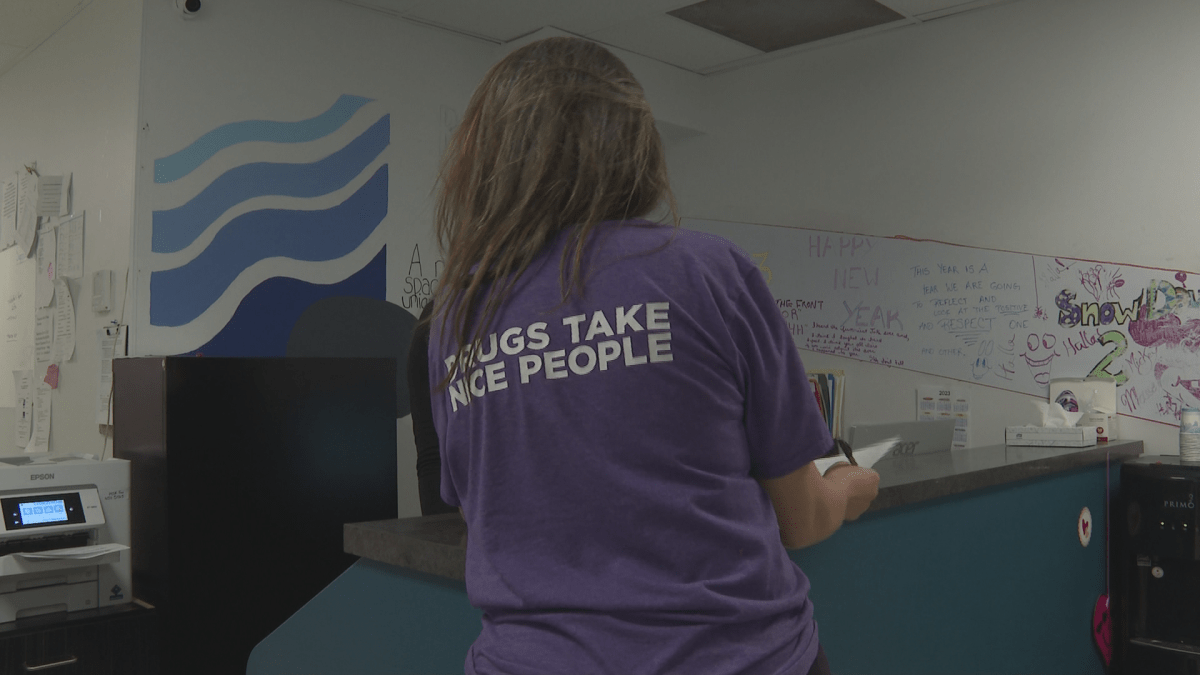The Fredericton Police Force has been asked by council to try to track the reasons why people are living in tents and not accessing emergency shelters and supports.

Chief Martin Gaudet gave a presentation to council on the living rough file and showed council the number of calls police responded to involving tents in the city.
“Some of these intakes and conversations take days,” he said speaking to the city’s public safety committee on Thursday.
He said on the map, there are about 350 pin drops, but it doesn’t necessarily indicate the number of tents that people may be occupying. Gaudet said it could be one tent at a location, or six.
Coun. Cassandra LeBlanc asked Gaudet to try to track the reasons “why people we’re choosing” to stay in tents.
“We do actually have to start (to) engage people living on the streets,” she said on Thursday. “I think one way is through the opportunity that we have.”

Get breaking National news
LeBlanc asked if this tracking was possible and if it could be provided to council.
Gaudet said he knows homelessness is a crisis.
“We want to be at the table. We are not the driving force here. We are not going to police ourselves out of homelessness,” he said in an interview on Friday.
He admits it will be really difficult to pinpoint the reasons, and indicate this to councillors on Thursday.
Many emergency shelters in the city require someone to be sober, or dry. They cannot bring in excess belongings, or have their pets with them. Women and men who are in a relationship must go to separate shelters.
“There is a lot of complexity in these situations. It is not taken lightly by us,” Gaudet said.
In 2021, there were sanctioned tent sites, which police visited, often checking on those living there to ensure their safety. In 2022, after two fires in tents during the previous winter, the city mandated police to move people along and take down tent sites as they popped up.
Dr. Sara Davidson, with the River Stone Recovery Centre, said the policy change has made people move around quickly and often put them a bit out of reach from what supports they do have.
“It’s been really destabilizing, unfortunately,” she said in an interview Friday. “Imagine coming home every day and your house is gone … and so they’re saying where am I supposed to go?”
She said people are trying to live in the best way they can.
“All kinds of things they have, like photo albums of kids, they don’t want to give up,” she said. “So there is a big choice, are you going to leave everything you own in order to go inside.”
Davidson said the reason emergency shelters were created no longer reflects the reality of what is needed to help people living rough.
“Why … are we not looking more closely at specific housing to meet these needs?” she said. “So, the question about asking why people are not going into the sites that may or may not be available is a really pertinent one to ask so we can learn what to do differently.”
She said police can be at the solutions table, but the data should be collected by someone not already entrenched in the system people have come to distrust, adding there is no meaningful change without involving the people actually experiencing homelessness in the decision-making process.










Comments